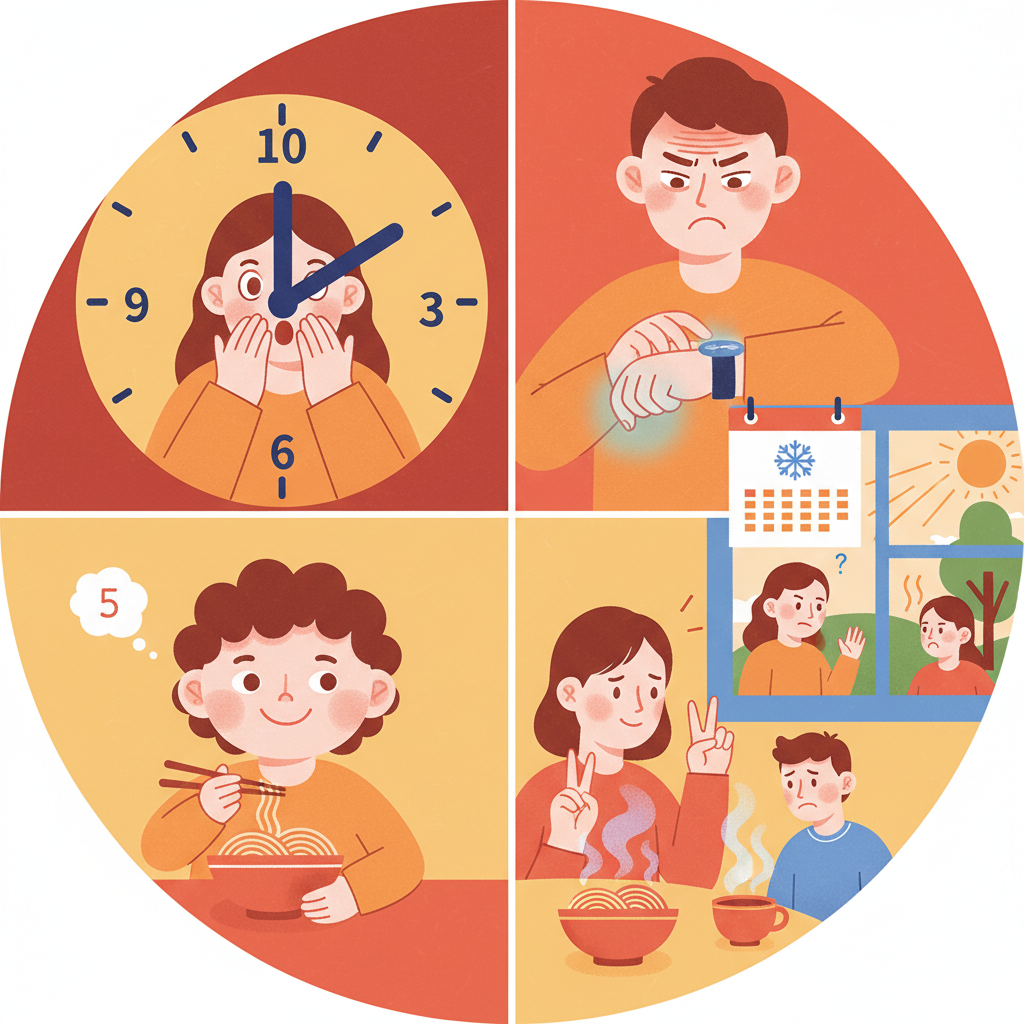⚡ Emphatic Structure 都……了 (dōu...le) - Already/Emphasis

🇪🇸 ESPAÑOL
La estructura 都……了 (dōu... le) se utiliza para expresar el sentido de "ya", pero con un matiz de énfasis, sorpresa o incluso queja. Se usa para resaltar que una situación ha llegado a un punto avanzado, como que es muy tarde, que ha pasado mucho tiempo o que alguien ya tiene una edad considerable. El 都 (dōu) en esta construcción no significa "todos", sino que intensifica la idea de que algo ha superado las expectativas, mientras que el 了 (le) al final marca el cambio de estado o la nueva situación.
🇬🇧 ENGLISH
The structure 都……了 (dōu... le) is used to express the sense of "already", but with a nuance of emphasis, surprise, or even complaint. It is used to highlight that a situation has reached an advanced point, such as it being very late, a lot of time having passed, or someone being quite old. The 都 (dōu) in this construction does not mean "all", but rather intensifies the idea that something has exceeded expectations, while the 了 (le) at the end marks the change of state or new situation.
📚 Key Phrase: 都晚上十点了,你怎么还不睡觉? (dōu wǎnshang shí diǎn le, nǐ zěnme hái bù shuìjiào?)
Grammar Focus
📝 Grammar Structure | Estructura Gramatical
🇪🇸 ESPAÑOL
Estructura básica:
都 + [Situación/Tiempo/Edad] + 了
Ejemplo: 都十点了 (Dōu shí diǎn le) = "¡Ya son las diez!" (con énfasis)
Funciones de 都...了:
- Énfasis temporal: 都晚上了 = "¡Ya es de noche!" (más tarde de lo esperado)
- Sorpresa por edad: 他都五岁了 = "¡Ya tiene cinco años!" (ha crecido mucho)
- Impaciencia: 都等了一小时了 = "¡Ya llevo una hora esperando!" (queja)
- Urgencia: 饭都凉了 = "¡La comida ya se enfrió!" (apúrate)
Diferencia con 已经...了:
• 已经...了 (yǐjīng...le) = "ya" (neutral, informativo)
• 都...了 (dōu...le) = "ya" (enfático, con emoción/queja)
⚠️ Importante: El 都 aquí NO significa "todos", sino que intensifica el énfasis.
🇬🇧 ENGLISH
Basic structure:
都 + [Situation/Time/Age] + 了
Example: 都十点了 (Dōu shí diǎn le) = "It's already ten o'clock!" (with emphasis)
Functions of 都...了:
- Temporal emphasis: 都晚上了 = "It's already evening!" (later than expected)
- Surprise about age: 他都五岁了 = "He's already five years old!" (has grown so much)
- Impatience: 都等了一小时了 = "I've been waiting for an hour already!" (complaint)
- Urgency: 饭都凉了 = "The food is already cold!" (hurry up)
Difference with 已经...了:
• 已经...了 (yǐjīng...le) = "already" (neutral, informative)
• 都...了 (dōu...le) = "already" (emphatic, with emotion/complaint)
⚠️ Important: The 都 here does NOT mean "all", but rather intensifies the emphasis.
💡 Key Points | Puntos Clave
🇪🇸 ESPAÑOL
- 都...了 = "ya" con énfasis emocional
- 都 aquí NO significa "todos", sino que intensifica
- Expresa: sorpresa, impaciencia, urgencia, queja suave
- Común para mostrar que algo supera expectativas
- Muy usado con tiempo, edad, duración
- Más emotivo que la estructura neutra 已经...了
🇬🇧 ENGLISH
- 都...了 = "already" with emotional emphasis
- 都 here does NOT mean "all", but intensifies
- Expresses: surprise, impatience, urgency, mild complaint
- Common to show something exceeds expectations
- Very used with time, age, duration
- More emotional than neutral structure 已经...了
📚 Key Vocabulary | Vocabulario Clave
🇪🇸 Español
Estudia estas palabras clave antes de practicar las frases completas.
🇬🇧 English
Study these key words before practicing the complete phrases.
词汇 Vocabulary
文化 Cultural Insights
🇪🇸 REFLEXIÓN CULTURAL
Esta estructura refleja una comunicación muy directa y pragmática, común en entornos familiares o de confianza en China. El énfasis en un estado "ya" alcanzado (la hora, la edad) a menudo se vincula con expectativas sociales sobre lo que es apropiado hacer en ese momento.
A diferencia de las quejas a veces más indirectas o irónicas en España, 都……了 es una forma muy habitual y casi formularia de expresar impaciencia o de dar un toque de atención, muchas veces con un trasfondo de cariño y preocupación. Es una manera afectuosa de "regañar" que refleja cercanía y familiaridad.
🇬🇧 CULTURAL REFLECTION
This structure reflects a very direct and pragmatic communication style, common in family or trusted environments in China. The emphasis on a state "already" reached (the time, the age) is often linked to social expectations about what is appropriate to do at that moment.
Unlike complaints that are sometimes more indirect or ironic in Spain, 都……了 is a very common and almost formulaic way to express impatience or give a gentle reminder, often with an underlying tone of affection and concern. It is an affectionate way of "nagging" that reflects closeness and familiarity.
作业 Homework & Practice
🇪🇸 TAREA
📝 Práctica con 都……了
Escribe 5 frases usando la estructura 都……了 para expresar énfasis, sorpresa o impaciencia:
Ejemplo: 都12点了,你怎么还在玩游戏?(Dōu shí'èr diǎn le, nǐ zěnme hái zài wán yóuxì?) - ¡Ya son las 12, ¿cómo es que sigues jugando videojuegos?!
🇬🇧 HOMEWORK
📝 Practice with 都……了
Write 5 sentences using the structure 都……了 to express emphasis, surprise, or impatience:
Example: 都12点了,你怎么还在玩游戏?(Dōu shí'èr diǎn le, nǐ zěnme hái zài wán yóuxì?) - It's already 12, how come you're still playing video games?!
Practice Checklist:
Ready for More?
Continue your Chinese learning journey with live classes on TikTok. Join thousands of students learning Mandarin every day!
Join Live Classes